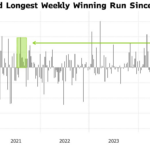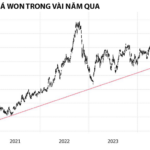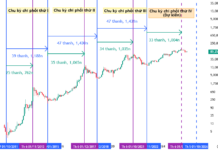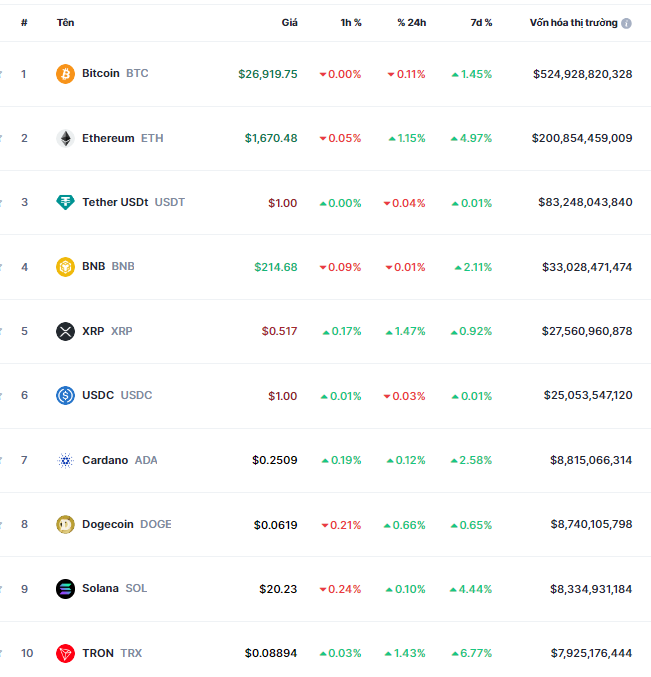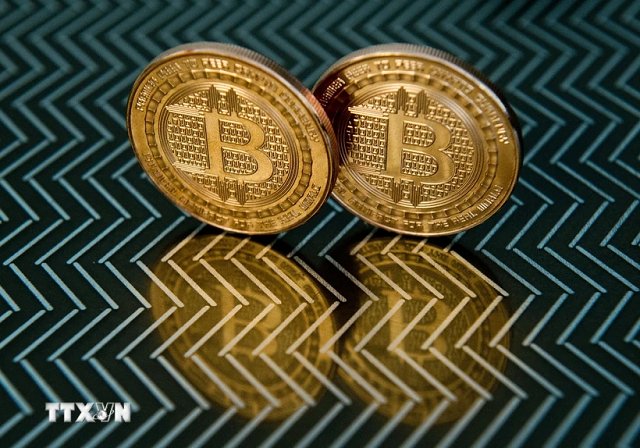
The digital currency, Bitcoin. (Photo: AFP/VNA)
|
Bitcoin recently surpassed the $100,000 mark for the first time, a significant milestone in the history of digital currencies.
Over the past month, Bitcoin’s price surged by more than 40%, capturing the attention of global markets as U.S. President-elect Donald Trump expressed his support for digital currencies and appointed several like-minded individuals to his cabinet.
Bitcoin’s price surge reflects a shift in the political and financial dynamics of the U.S. The trajectory of policies under the upcoming Trump administration could profoundly impact the balance between regulations and speculation, shaping the future of the country’s economy.
The shift in Trump’s perspective on digital currencies showcases the growing influence of capital associated with this type of money.
In 2019, Trump criticized digital currencies as being “highly volatile” and conducive to illegal activities. However, in 2024, he announced plans to establish the U.S. as a global Bitcoin superpower.
Trump’s cabinet choices also reflect this shift. His selection of Paul Atkins, a digital currency advocate, as the Chairman of the U.S. Securities and Exchange Commission, further fueled the upward trajectory of Bitcoin’s price.
According to a Pew Research Center report, 17% of Americans have invested, traded, or used Bitcoin or other digital currencies. This figure rises to 23% in higher-income groups and a substantial 41% among adults under 30.
However, despite Bitcoin’s growing appeal, skepticism persists.
Economists like Eswar Prasad, a professor of international trade policy at Cornell University, argue that Bitcoin’s unstable value makes it more suitable for speculation than transactions.
Many Americans remain cautious about the safety of digital currencies, with the Pew survey showing that only 5% express strong confidence in the reliability of this form of money.
On the one hand, Bitcoin’s characteristic volatility makes it susceptible to manipulation by large investors. With limited liquidity and utility, Bitcoin is highly sensitive to market sentiment, regulatory changes, cyber-attacks, and speculative trading.
On the other hand, years of loose U.S. monetary policies have fueled inflation, eroding the purchasing power of Americans and driving them towards riskier assets.
The risk of speculative bubbles in digital currencies is not new. In 2023, frauds related to digital currencies in the U.S. caused losses of over $5.6 billion, a 45% increase from the previous year.
Analysts warn that as the world’s largest economy and a key player in the global financial system, the U.S. must exercise responsible financial regulation. Failure to do so could harm both American investors and the global economy at large.
Le Minh
A Historic Milestone: Bitcoin Surpasses $100,000
Bitcoin has officially surpassed the $100,000 mark, ushering in a new era for the world’s leading cryptocurrency. This milestone signifies a pivotal moment in the evolution of digital currencies, solidifying Bitcoin’s position as a prominent player in the global financial landscape. As Bitcoin continues to break records and captivate the world, its impact on the future of money and the potential for decentralized finance becomes increasingly evident.
What Does Donald Trump’s Senior Staff Appointments Mean for Vietnam?
Although Trump’s second term as US President may not benefit Vietnam as much as his first, VinaCapital believes there is a very low risk that tariff policies will disrupt the growth of the Vietnamese economy.

